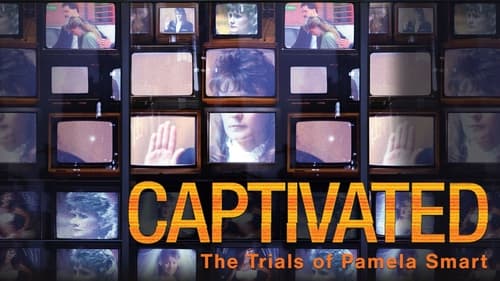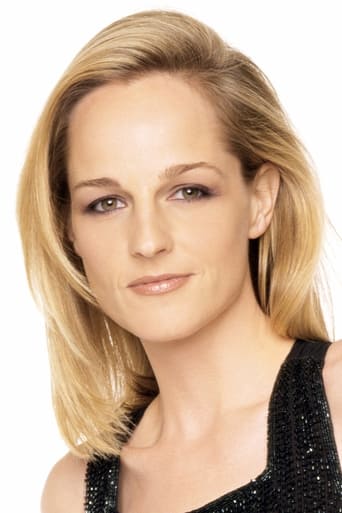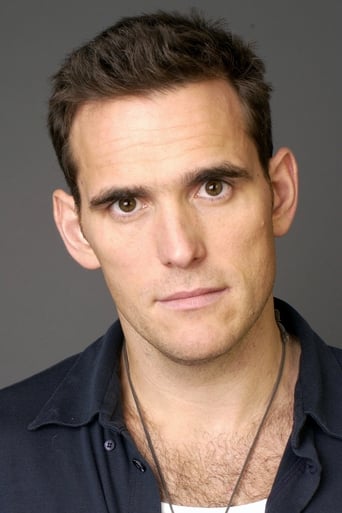calvinnme
HBO documentaries tend to be of pretty good quality. Here the documentary talks about how the media hype interfered with Pam Smart's chance at a fair trial. No doubt different decisions would have been made had this not been such a media circus. The tale of the killing of Greg Smart was irresistible to the media. You have the beautiful 23 year old widow as the accused murderess by proxy of her husband, the teens she had influence over in her job with the school carrying out the crime, and the sordid affair she had with the actual 15 year old shooter. No doubt the judge liked the idea of Clint Eastwood possibly playing him in the movie, and maybe that was on his mind when he refused to move the trial. You have people who claimed to see the actual teen killers getting worked up before going on the stand so they could give "good performances". Method actor teen murderers! Who would have thought it! The Smart family themselves complained about the accused boys, given sentences for second degree murder in return for their testimony against Pam, smiling after their testimony.So given what is shown here maybe there is room to doubt. But HBO left out one little thing - the tapes that came from the wire Cecilia Pierce was wearing when she talked to Pam. Gone was that ladylike "woe is me" victim of circumstance demeanor. Instead Pam talks like she very well knows what went down when her husband was killed, and you can hear her talented manipulation of Cecilia when she tells her not to cooperate and tell the police everything. That was the damning evidence that HBO did not talk about and turned this from probably a hung jury result into a conviction. Those tapes were pretty clear too - not mangled with noise as many have said. I was one of the many listening/watching in real time when this trial aired on TV.One thing I thought was interesting came from one of the jurors. She said there were three that were threatening to hang the jury in spite of everything. She also said that if she had known the only sentence the judge could give Pam was life with no parole she would have hung it anyways. Really? What exactly should you do with somebody who manipulated teens into killing her husband because she is angry about a one night stand he had a few months before? Give them a stern talking to and send them home to mother? I'd recommend the documentary for what is there, but I'm knocking off a few stars for what was likely omitted because it makes the case more open and shut.
Geeky Randy
Jeremiah Zagar's HBO documentary tells the story of the high-profile New Hampshire trial and conviction of Pamela Smart, the accused murderer of Gregg Smart (her husband) in 1990. The film is packed with interviews—which includes: Smart herself, family, friends, accused conspirators, authors, reporters, and others—and does a pretty good job of letting the viewer choose who to believe. Right from the get-go, the film's main interest is how the notorious media coverage may have interfered with Smart's right to a fair trial, and Zagar not only never lets up but actually keeps pushing the issue harder and harder as the film progresses, making itself as sensationalistic as the subjects it's criticizing. Still, very intriguing and quite education for those who were not around or do not remember the hype of it all in the early-'90s.*** (out of four)
kluck_c
So, I was really looking forward to the release of this documentary because I wanted to look for another perception of the story. I honestly wanted to be convinced that the producers something that would make one reconsider the verdict against her, and unfortunately, I did not. The story was interesting in that it added some critique about some of the movies that were made about this case and also some insight into the investigation. There was nothing there, though, that made a person seriously consider a miscarriage of justice. It may seem unfair that the people that actually committed the murder are being offered a parole date but as the case stands, Greg Smart was not the only victim of this case. The students that Pamela engaged in her scheme were also victims of her. In particularly, Billy Flynn, who was responding and acting within the context of a situation that he never should have been put into in the first place.
Robert J. Maxwell
If you liked Errol Morris' "The Thin Blue Line", you'll like Jeremiah Zagof's "Captivated." It's not as neatly organized, nor as convincing, but it's intelligent and it will involve all of your mental faculties that yearn to make judgments.In the early 90s, a pretty young woman named Pamela Smart was convicted of enlisting the help of a couple of fifteen-year-old kids in helping to murder her husband. She was sentenced to life without. The kids plea bargained their way out after confessing that they'd shot the husband. Two of the four are out already, two are eligible next year.It was described by some as another "trial of the century" and turned into a media frenzy. According to this documentary, no one who was awake at all could have escaped the progress of the trial. I must have slept through the 90s but I'm persuaded that the case did get a great deal of media attention. There were two movies made about it. A docudrama called "Murder in New Hampshire," with Helen Hunt as the vamp, and a fictionalized version, "To Die For," with Nicole Kidman, who looks absolutely exquisite and delivers what may be her best performance. But just because we see events through selective captures doesn't necessarily establish the truth value of the events.Pamela Smart has been doing her time in a facility in New York state, where the other inmates brutalized her and the corrections officers raped her and forced her to pose for salacious photos, which they then sold to tabloid newspapers -- or so she and some fellow inmates claim.The simple fact is that practically no one in this film can be trusted to tell the truth, partly because of the media. An example: The judge in the case refused to permit a change of venue, although if ever one were needed it would seem to be here. Why did he refuse? It was a high-profile case and when they wrote the books and made the movies about it, he would be a MOVIE STAR. (He suggested he be played by Gregory Peck.) Everybody involved in the case would be a celebrity, one way or another. The lies and distortions abound. People contradict their earlier statements, deny their own actions, and describe others as different from the people we see in the film. Pamela Smart, now a flinty looking blond in her forties, sees herself as having been demure and puzzled, as well as innocent. But there's a clip of her in the courtroom. The victim's father is speaking his piece after the verdict, sobbing as he reads his notes, and she leaps to her feet and begins shouting viciously back at him.The difference between "Captivated" and "The Thin Blue Line" isn't just in the level of expertise shown in the editing, or the fact that "Blue Line" led eventually to the release of Randall Adams, who had been convicted of murdering a patrolman. "Captivated" is less interested in the details of the murder than in the media blitz surrounding the trial. No celebrity attended Randall Adams when he was railroaded, but the Pamela Smart case had sex in it, and a deviant kind of sex, a 22-year-old pretty woman and a couple of horny but stupid high schoolers. The public evidently salivated over the spectacle. Smart was beautiful, sexy, and popular -- enough in itself to make many other women hate her and envy her. The male spectators probably envied the kids. The main theme is laudable. Not "she's innocent" but "the media contaminates what it examines." Every high-profile case is like carrying out a serious operation before the germ theory was accepted. You know, unwashed bare hands that five minutes earlier were dissecting a corpse? The problem is that the film doesn't have a real narrative trajectory. There are plenty of talking heads -- some of them making sense, others making fools of themselves -- and many of the points hit the target. What normal man WOULDN'T want to be played by Gregory Peck? The director is rather too obviously trying to convince us that Pamela Smart had nothing to do with the murder. I was persuaded that the jury, the witnesses, the talking heads, and the public at large, were made up of ordinary, flawed human beings, and that justice in this case is a matter of probabilities, as it usually is. He'd been better off to applying the Heisenberg principle to the new coverage in the courtroom: You can't poke a camera into an event without having the participants react to the camera. Technically, Zagar borrows a lot from "The Thin Blue Line" but renders it a bit more flashy. Multiple shots of a small tape recorder playing, while we listen to a recorded statement, only this time, instead of one magnetic, static image, the camera slowly circles the indifferent recorder. The minimalist musical score could have been written by my main man, Phillip Glass, described as "doodle doodle doodle".I have to hand it to HBO, though, for undertaking some tough jobs in making these specials. One of the oases of taste and ambition in the Sahara desert that is television.





